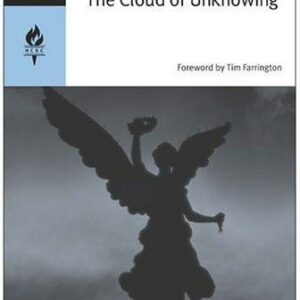Waste Is Information
$40.00
| Title | Range | Discount |
|---|---|---|
| Trade Discount | 5 + | 25% |
- Description
- Additional information
Description
The relationship between infrastructure governance and the ways we read and represent waste systems, examined through three waste tracking and participatory sensing projects.
Waste is material information. Landfills are detailed records of everyday consumption and behavior; much of what we know about the distant past we know from discarded objects unearthed by archaeologists and interpreted by historians. And yet the systems and infrastructures that process our waste often remain opaque. In this book, Dietmar Offenhuber examines waste from the perspective of information, considering emerging practices and technologies for making waste systems legible and how the resulting datasets and visualizations shape infrastructure governance. He does so by looking at three waste tracking and participatory sensing projects in Seattle, São Paulo, and Boston.
Offenhuber expands the notion of urban legibility—the idea that the city can be read like a text—to introduce the concept of infrastructure legibility. He argues that infrastructure governance is enacted through representations of the infrastructural system, and that these representations stem from the different stakeholders’ interests, which drive their efforts to make the system legible. The Trash Track project in Seattle used sensor technology to map discarded items through the waste and recycling systems; the Forager project looked at the informal organization processes of waste pickers working for Brazilian recycling cooperatives; and mobile systems designed by the city of Boston allowed residents to report such infrastructure failures as potholes and garbage spills. Through these case studies, Offenhuber outlines an emerging paradigm of infrastructure governance based on a complex negotiation among users, technology, and the city.Foreword vii
Preface: The Paper Police ix
Introduction: Waste Is Information 1
I Legibility 21
Prologue to Part I: Tracing Waste Geographies 23
1 Visibility 27
2 Reading Structure in Waste 53
Epilogue to Part I: Waste Forensics 87
II Informality 93
Prologue to Part II: Making Informal Waste Systems Legible 95
3 Local Legibility 101
4 Tacit Arrangements: Reading Presence and Practices 117
Addendum: Structures of Brazilian Cooperatives 141
III Participation 151
Prologue to Part III: Crowdsourcing Infrastructure 153
5 Who Is Infrastructure? Participation in Urban Services 157
6 The Urban Problem at the Interface: Reading Governance 177
Epilogue to Part III: Tool or Therapy? Critiques of Civic Technologies 201
Conclusion: A Case for Accountability-Oriented Design 207
Notes 227
References 231
Acknowledgments 259
Index 261Dietmar Offenhuber is Associate Professor and Chair of the Department of Art + Design at Northeastern University, with a joint appointment in the School of Public Policy and Urban Affairs. He is currently a visiting scholar at Harvard metaLAB and was recently a fellow at the Princeton-Mellon Initiative in Architecture, Urbanism, and the Humanities. He is the author of the award-winning Waste Is Information (MIT Press).US
Additional information
| Weight | 13 oz |
|---|---|
| Dimensions | 6.0000 × 9.0000 in |
| Series | |
| Imprint | |
| Format | |
| ISBN-13 | |
| ISBN-10 | |
| Author | |
| Audience | |
| BISAC | |
| Subjects | international politics, urban planning, geopolitics, housing, SCI026000, engineer, science gifts, POL002000, political books, political science books, science books, science book, environmental science, political philosophy, world politics, science gifts for adults, science books for adults, engineering books, engineer gifts, automation, Sociology, politics, culture, psychology, business, science, innovation, technology, society, environment, philosophy, climate change, economics, political science, energy, engineering, ai, internet, ecology, government |










